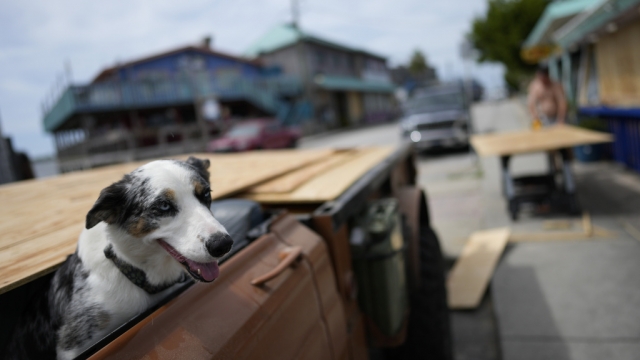As Idalia became a Category 2 hurricane Tuesday afternoon, storm surge was at the top of mind for emergency crews and residents as they prepared for a direct hit in parts of the northeast Gulf Coast.
But, in towns like Gainesville, which are not on the coast, inland flooding became a real concern as the storm gained strength.
The catastrophic winds and the damage that comes with those conditions were still expected in parts of the central areas of the state.
SEE MORE: Residents in Jacksonville are bracing for Hurricane Idalia
The hurricane was moving northward, earlier on Tuesday, in the southern Gulf of Mexico at about 12 mph, approaching Florida's Gulf Coast.
Outer bands of the storm are expected to start passing over coastal cities in Florida by Tuesday evening. Landfall proper is expected on Wednesday morning.
A hurricane warning is in effect for Florida's Gulf Coast from Longboat Key northward to Indian Pass. Tropical storm warnings have been issued in the Fort Myers area due to Idalia's outer bands.
A hurricane watch was in effect from the mouth of the St. Mary's River northward to Edisto Beach.
Hospitals in the state prepared to follow emergency protocols, preparing in the event that doctors and medical staff could not travel on roads.
Surgeons who are on call at hospitals will be expected to stay in, with some of them possibly choosing to bring their entire families with them to shelter-in-place at those medical centers.
And authorities with the Florida Department of Corrections said prisons and jails in the state would begin increasing the amount of water and food they have in storage.
Visitations were canceled to prepare for the storm and staff began following emergency protocols to ensure the safety of the public and of prisoners.
State officials said the need for prison evacuations would be assessed on a case-by-case basis, and if inmates were relocated, there would be announcements on their new location within 24 hours after they are moved.
Trending stories at Scrippsnews.com



